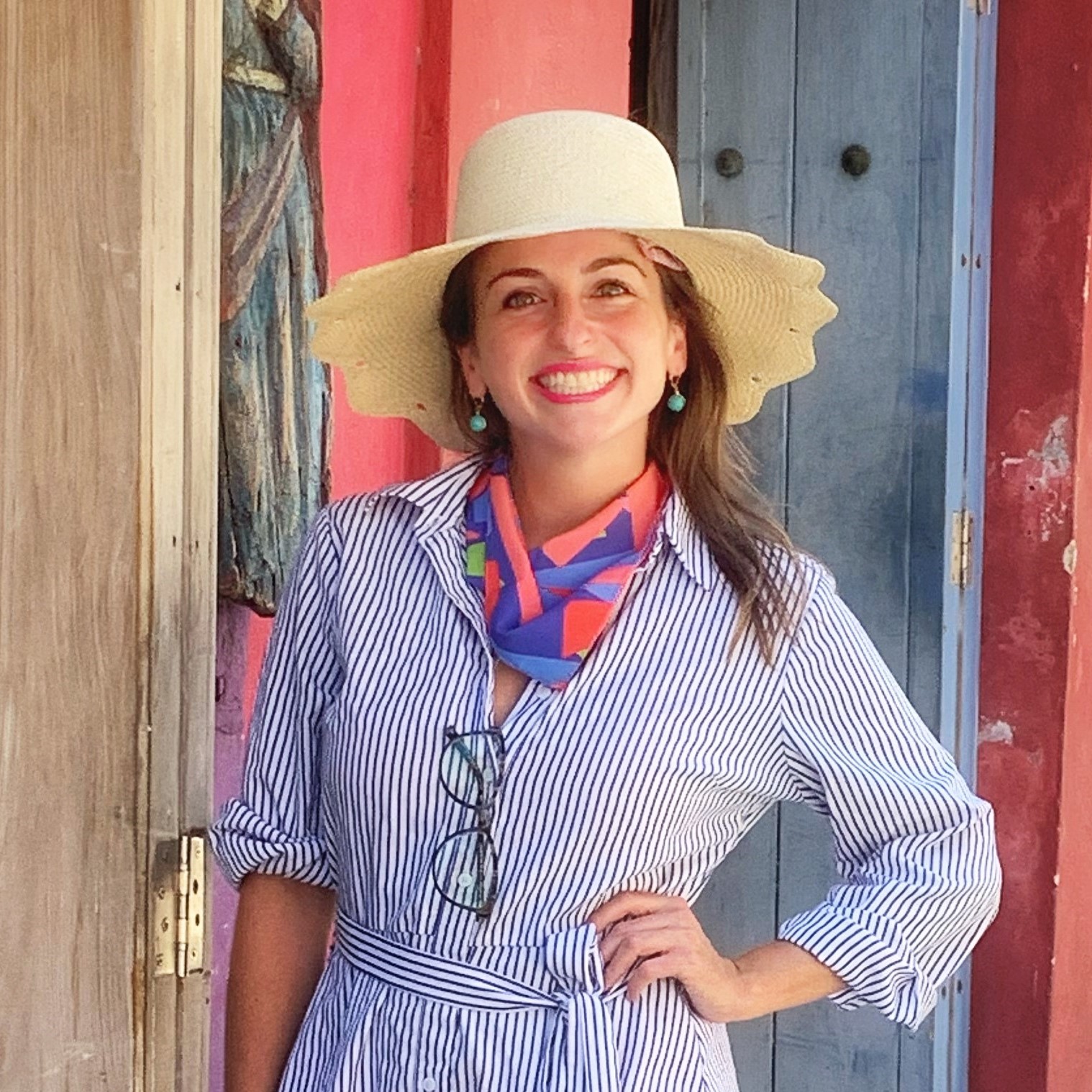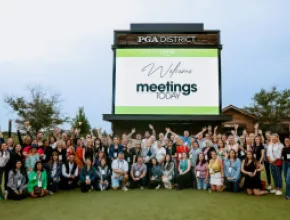Dear Ashley, How can teams take steps to be as culturally sensitive as possible when looking to infuse local culture and experiences into their events?
- Megan Henshall, Global Events Strategic Solutions Lead, Google
Dear Megan,
Thank you so much for asking this question. It is such an important discussion to have as we aim to bring both authenticity and shared respect to our events.
If you and your team are truly looking to gain an understanding of a new culture–and be conscious of how you are doing so–take these tips into consideration as you prepare for and plan your event:
1. Arrive aware.

Being culturally sensitive starts with being genuinely curious. Don’t wait until you land to start learning about your destination and its culture. Ahead of your trip, set some time aside and start getting to know the region your team will be visiting. Be intentional in learning about the destination’s history, people and traditions, as well as the region’s current events.
I like to start by researching the area’s founding story, then will research the symbols represented on the flag, the average annual income, the political parties and religions, the social issues that most affect the daily life of locals, the unique customs that are practiced, and the holidays that are most celebrated. And, if there is an official language spoken that is different from your team’s, start practicing a few common phrases together.
Planner Pro Tip: Level up your learning by hosting a pre-event virtual Q&A session with your destination management company and your team. Another fun way to become more aware of and immersed in the local culture is by reading a book or collection of stories about the destination. Better yet, gift everyone with an e-book reader and have the book pre-loaded for them to access.
[Related: Dear Ashley: What Are Some Special CSR Ideas for an Incentive in Puerto Rico?]
2. Plan past pretty.

Many destinations are full of vibrant colors, decorations, traditions and celebrations that make event planning a ton of fun. Use these unique symbols as cultural clues to learn about what locals value most. The more you learn about the reasoning behind these cultural clues, the better you can understand and appreciate their significance.
Let’s consider events in Hawaii. It is common to greet guests with leis. Leis are necklaces made up of flowers, leaves, sea shells, and feathers from the local area. They are considered a makana, which translates to “gift” in the Hawaiian language.
According to one of my favorite Hawaiian historians, the lei started as a way to celebrate Makhiki (which is the word for year but is interpreted as “harvest”). It would be a holiday similar to Thanksgiving in the United States. Today, leis are considered a symbol of love and greeting, which is why they are perfect welcoming gift at events.
Locals also use leis for all kinds of celebrations, including memorials such as “paddle outs”. If a Hawaiian who is a “waterman” (someone who lives their life on the water - like a surfer, fisherman, paddler) passes away, their friends and family take surf boards and paddle themselves out in the water, get in a circle, throw the leis in the center of a circle, hold hands and do a prayer for their loved one.
Planner Pro Tip: When you start mapping out your event design, get to know the “why” behind the traditions you are infusing into the experience, and check with your local partners to ensure it’s acceptable to take part in the tradition. If the answer is yes, start brainstorming special ways for your team to meaningfully learn about and connect with the tradition. If you are planning an event in Hawaii and planning to include leis as part of your greeting, share the history of the lei with your attendees. And if you want to honor your team members or VIPs with some extra special “royal treatment”, include feathers as part of their leis. Hawaiian royals were typically honored with leis made from bird feathers. They would trap the birds by putting sap on trees, and when the birds got stuck, they would take two feathers from the bird allowing the bird to continue to live on without endangering its ability to fly again.
3. Capture your experience (with permission).

Remind your team (and any photographers you may be working with) that being culturally sensitive is rooted in respect.
When you arrive at your destination, you will likely encounter many new, exciting things. That’s the joy of travel; there is always a fun introduction to different kinds of food, clothes, traditions, music, language, art and more. While one’s first instinct may be to take photos of these cultural elements, it is important to first ask permission.
Keep this phrase in your back pocket: “Hi there, I love seeing {insert what you are interested in taking a photo of and perhaps share a compliment about it}. Would you be alright if I take a photo?” If you receive a no, say thank you and respect their response. If you receive a yes and you are interested in sharing the photo in the future, make sure to also ask if they are okay with you sharing the captured image.
Be sure to also pay attention to nonverbal behaviors, as people may be uncomfortable simply saying no.
Planner Pro Tip: Always have local currency with you so you can express your gratitude for a photo with a small tip.
[Related: Coastal Mexico Resorts That Delight With Local Flavor]
4. Recognize your own bias and privilege
As you and your team travel, remember the great privileges you carry with you. Make an effort to be open to new ways of doing things. Pause before you judge, and simply ask “why” or “can you tell me more?” to better understand. You may be amazed at how many things you have in common when you take the time to ask questions.
Again, this is where your advance research is vital. It is human nature that cultural bias pops up when we don’t know the facts–about social customs, political systems, facial expressions and so many other things. That’s why it is so important to respect differences and to interact with curiosity, compassion and respect.
There are, of course, endless ways to approach being culturally sensitive as you plan and host an event in a new destination. While infusing local culture into your event can feel complex, it is full of incredible opportunities to elevate your team’s experience.
Continue being curious,
Ashley
Looking for the data-backed benefits for connecting events with the local destination culture? Check out my “How to Sell the Idea of a Culturally Authentic Incentive Travel Program” Dear Ashley column on MeetingsToday.com next for some facts and inspiration.
Have a tip to add to this list? Send me a message on Instagram at @ashleyroseontheroad–I’d love to hear from you.
Want to ask Ashley a question about infusing local culture and community into your destination events? Send your questions to Ashley at @ashleyroseontheroad on Instagram or email at alawson@achieveincentives.com.







